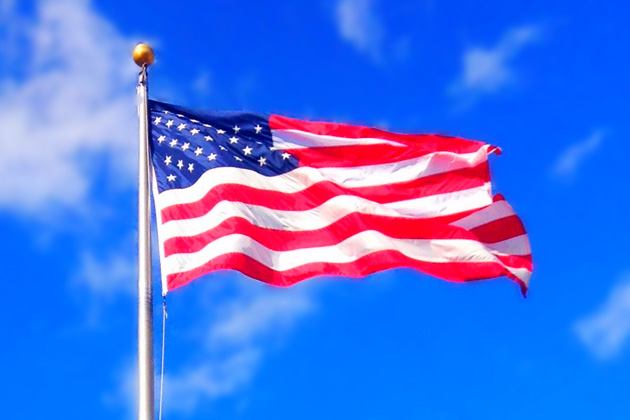
By Laurie Bergner
July 4 is a special day for us, celebrating our independence, the first step toward creating our new country, a new experiment in the world, that of a real democracy. Nowhere else in the world had a government like ours, formed to be one “of the people, by the people, for the people.” The idea that it is the country’s people who are responsible for their country was then a new and radical one. It is also significant that our country was formed by separation from England, and the theme of isolation has been a controversial one throughout the rest of our history. For example, we have very often refused, and continue to refuse, to ratify international agreements that hundreds of other countries sign on to, agreements like banning land mines, the international criminal court, the rights of the child, elimination of discrimination against women, and against torture, among others. Often the only other countries who aren’t part of them include countries like Sudan and Somalia, chaotic, lawless countries. So why doesn’t the U.S. ratify them? Because many lawmakers believe we are above international law, that we should make our own law and not have to answer to any law but our own. Another isolation issue has been our historical opposition to going to war. Americans were against joining both World War I and II, not feeling responsible for what was happening in the rest of the world and apparently not aware that what happens in the rest of the world matters for its own sake, as well as affecting our country.
But if anyone believes that isolation is a good in itself, that nationalism means isolation, just look at Britain. Angry Brits voted to withdraw from the European Union. They didn’t want immigration, they rallied to calls from Boris Johnson to make our country great again by withdrawing. Nationalism was equated with isolation. Voters ignored the pleas of experts that it would be bad for Britain, as well as for Europe, to exit. Listening to bravado, backed up by no facts or details, led to a stunning vote to exit the EU, a vote that pretty much everyone believes is a huge mistake. Promises made are already being withdrawn, less than a week after the vote. Turns out they were lies, but voters didn’t look deeply into these promises. They just went along with emotions and ignored experts, people who really knew. Listen to what a British politician said about him: “If he didn’t know the answer to the question, which was a regular occurrence, he’d use bluster and wit to avoid answering.”
There is a familiar feeling to this description. In our presidential campaign, we hear calls for making our country great again by more isolation, promising to withdraw from international agreements, such as climate control.
Our country is great in many ways, but democracy has a central weakness: it depends on voters to make smart choices. Britain has just encountered that problem, and we are faced with it too. As we celebrate our independence, let’s remember that there is an irony to independence: our independence depends upon interdependence with the rest of the world, in trade, environment, and international law.
Laurie Bergner is a clinical psychologist in private practice, working with individual adults, families and couples. She also works with the nonpartisan League of Women Voters, helping organize candidates forums, educational programs, and many issues in the field of law and justice. She has received many recognitions in both fields, including YWCA’s Women of Distinction in the Professions, Leaguer of the Year, LWV Special Project Awards, and the LWV of Illinois’s prestigious Carrie Chapman Catt award. Laurie has a wonderful husband and two grown children – also wonderful. She loves biking in the countryside, reading, and traveling.
The opinions expressed within WJBC’s Forum are solely those of the Forum’s author, and are not necessarily those of WJBC or Cumulus Media, Inc.






